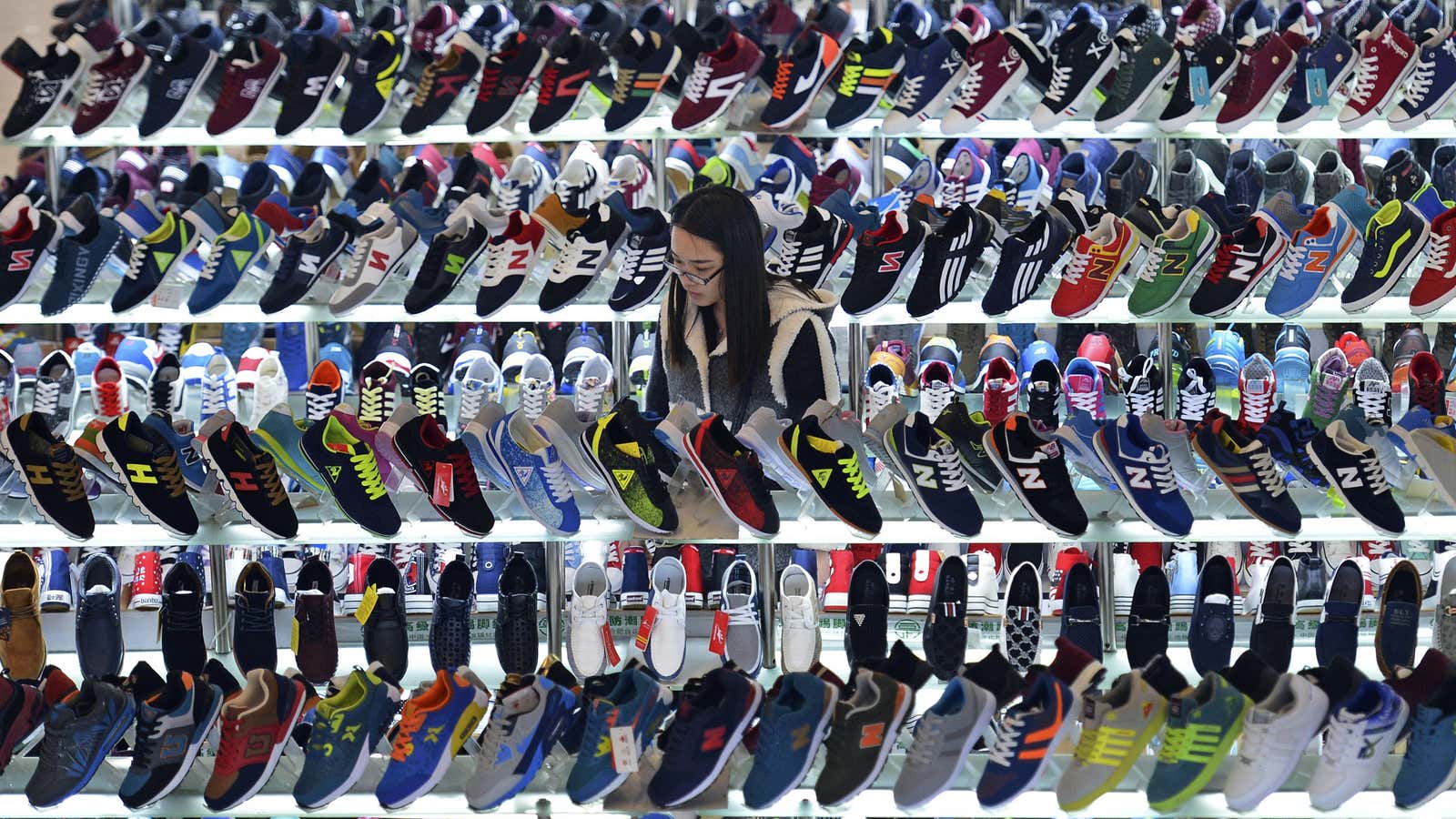The internet of clothes might soon be a reality, if a deal announced today (Apr. 18) between Avery Dennison, a major manufacturer of apparel and footwear care-labels, and Evrythng, a London internet of things startup, succeeds. The partnership will result in 10 billion items of clothing getting connected to the internet, the companies say.
Avery Dennison will attach special labels, sometimes including sensors, to clothes when they’re manufactured. The firm counts Nike, Under Armor, Hugo Boss, and others among its clients. These labels function as unique identifiers for each piece of clothing, and the data is stored in a platform developed by Evrythng.
Unique identities pave the way for brands to write apps that can account for a specific item of clothing, so a pair of sneakers might advise you how best to recycle it when it’s worn out; or you might be able to verify that those yoga pants are indeed made of organic cotton. You might also track down whether your shoe size is available in a particular store. “The internet of things is still at the margins in the way it hits consumers’ lives; now you have billions of everyday objects with identities in the cloud,” says Andy Hobsbawm, a co-founder of Evrythng.
The companies won’t say what brands have signed up to use this technology, nor the value of the deal. But they say brands will likely use the platform for things like loyalty programs at the start, and to expect the first examples to hit the shops in about two months. Avery Dennison says sportswear brands are the most likely to give the tech a try, a reasonable assertion given Nike’s planned smart sneaker, and fashion’s increasingly tight embrace of wearable technologies. ”We’re noticing sports brands engaging consumers with technology more and more,” says Deon Stander, a vice president at Avery Dennison.
Applying a product label that stores some digital information isn’t new–there are already bar codes, in use since the 1960s, and more information-heavy QR codes, invented in the 1990s. Evrythng says its platform is different because of its granularity–giving an identity to each product, and not classes of products, as is common with QR codes–and because it formats the data so it can be manipulated with popular programming languages.
Evrythng stresses data privacy and security. It says brands will control what data gets accessed by whom, and that it has safeguards in place to ensure data is adequately protected. The vulnerability of the internet of things has been a hot topic among security researchers, who believe the proliferation of devices will only increase the potential for cybercrime. “The more information accessed on the web the better, but like everything else on the internet, there also has to be individual judgement calls about what’s appropriate. Not everyone wants to share everything, and that’s fine,” Hobsbawm says.
